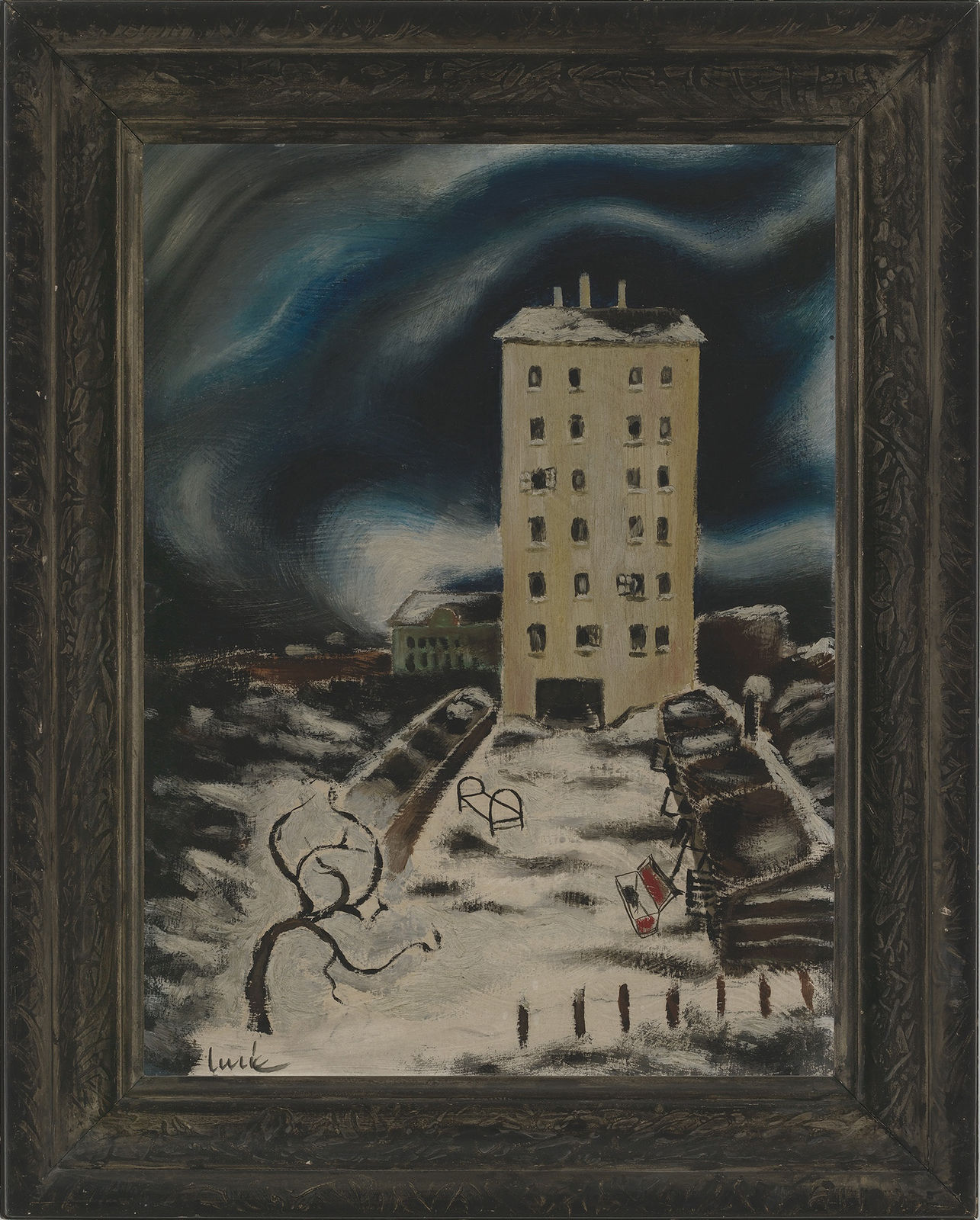Boris Lurie
In October 1941, when the Riga Ghetto was established, the Jewish inhabitants of Riga were expelled from their homes and moved to the town’s periphery. Initially, the ghetto was fenced in with barbed wire and a nearly twenty-foot-tall fence. The ghetto contained the able-bodied inhabitants – primarily men who were skilled laborers. Lurie’s family found themselves in a house on Ludzas Street. From here, Jews were collected for “evacuation,” a euphemism for mass murder. And it was here that young Lurie saw his mother, sister, and grandmother for the last time: they were shot to death on December 8, 1941 in the Rumbula forest, on the outskirts of Riga, where over a period of two days the Germans, together with their Latvian collaborators, exterminated nearly 26 thousand Jews, most of them women and children.
Boris remembered that December day down to the smallest of details, when his family perished, and the image of that accursed house, forever immersed in the deep and disturbing night, remained for him a monstrous symbol of that time for the rest of his life. In his memoirs, the artist describes his impressions of that place in this way:
Even the broad-shouldered monster, impervious to the cold, cannot take it any longer: the coldest winter in one hundred years, they say. He is dressed in sports training pants and a T-shirt. He leans over the barbed wire fence stretching along Ludzas Street, the Ghetto's main thoroughfare. The barbed wire fence separates the two Ghettos, the Arbeitslager-Ghetto from the Grosses-Ghetto... His feet are deeply implanted in snow on the Arbeitslager Ghetto side, but his body stretches across the neutral zone of Ludzas Street and across the second barbed-wire fence into the Grosses Ghetto. In this dark predawn winter hour, in freezing snow, he vomits and vomits streams of blood, covering the snow and soaking into it, collecting into rivulets, seeping into houses where frightened people, bundled up for the trip, expecting the Latvian policemen to break in to invite them to join the ‘evacuation’.”
